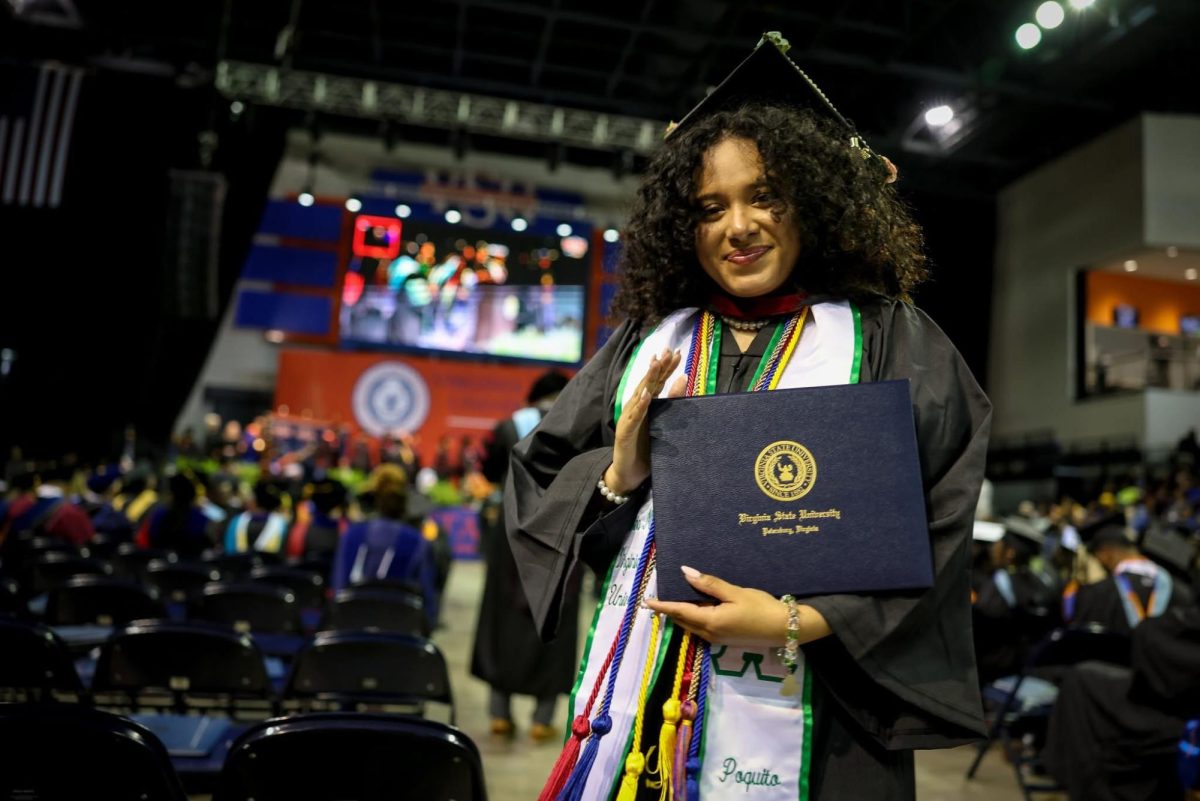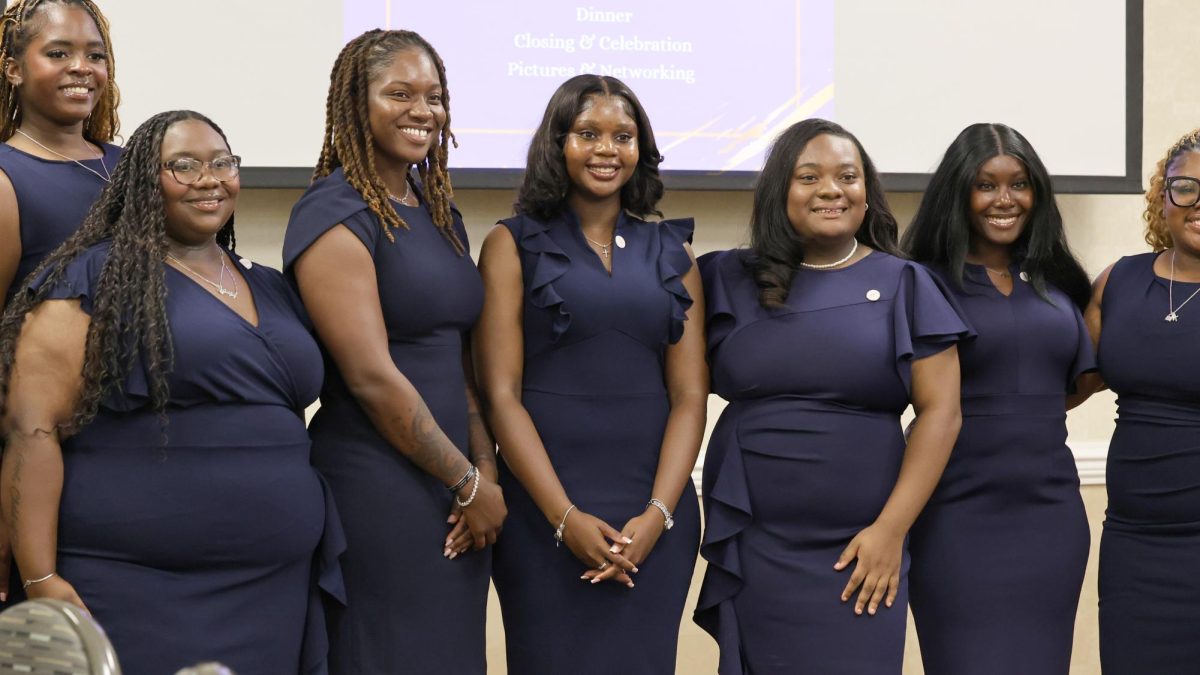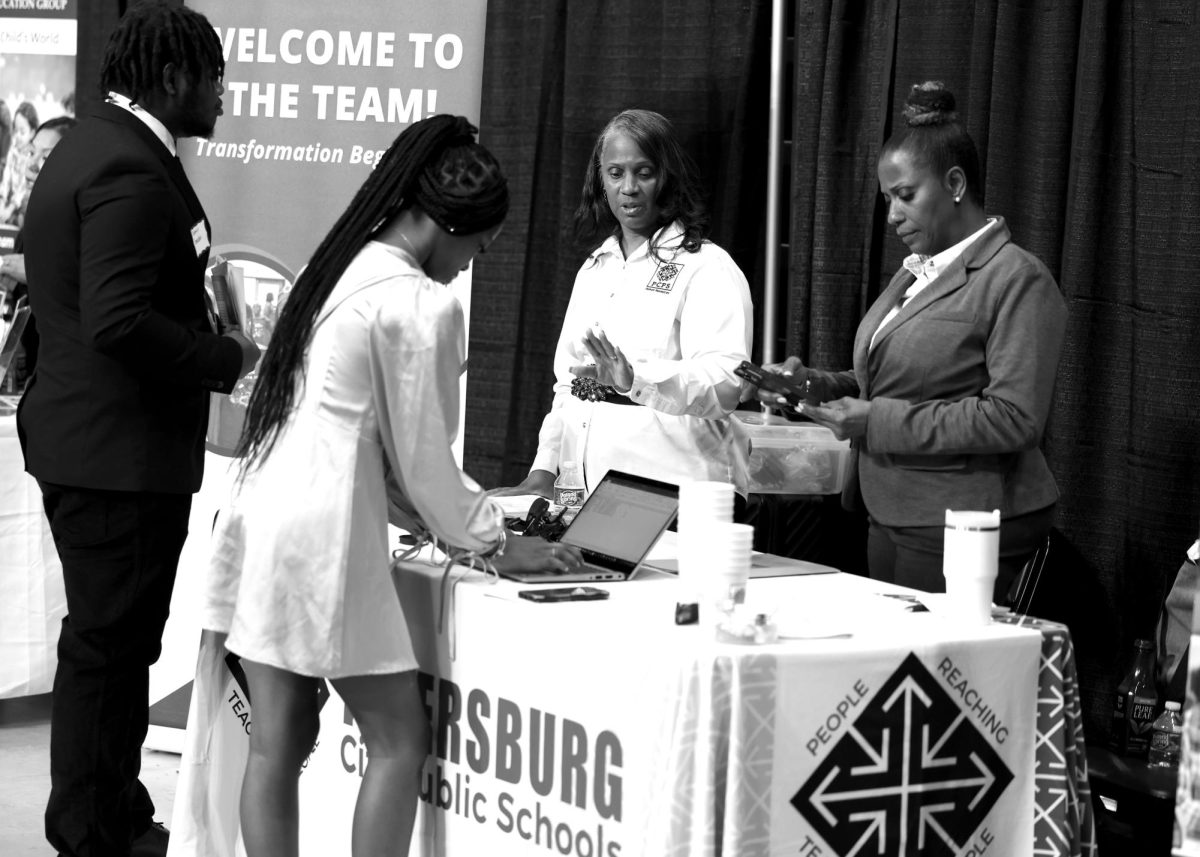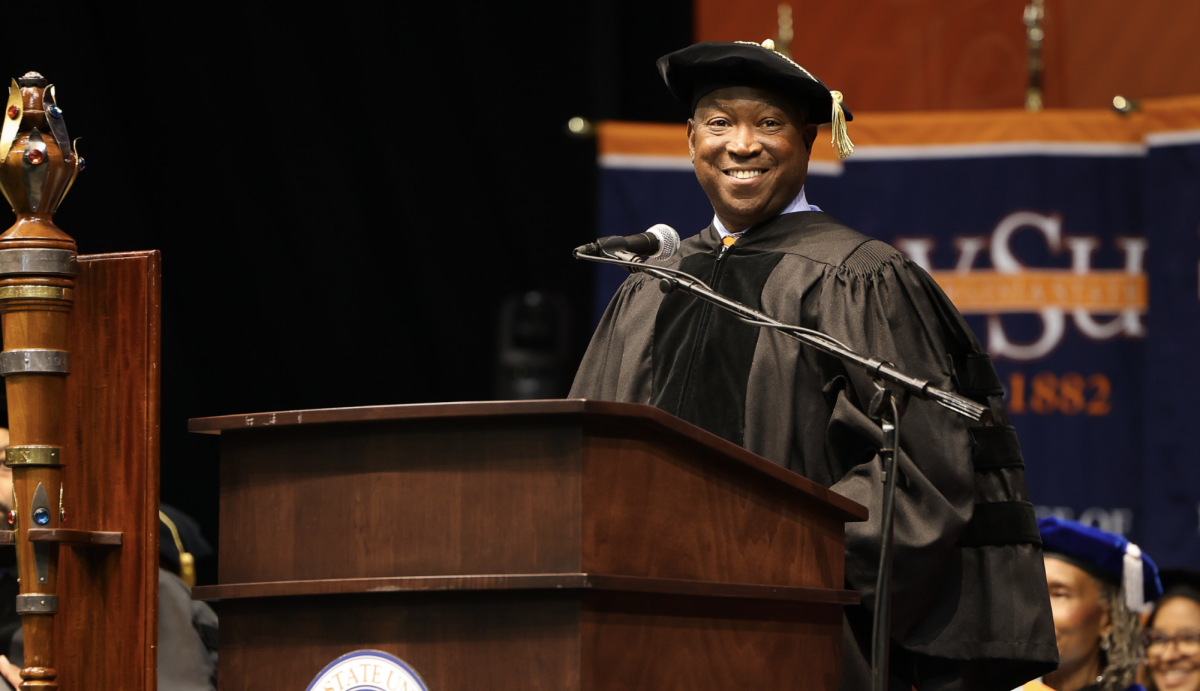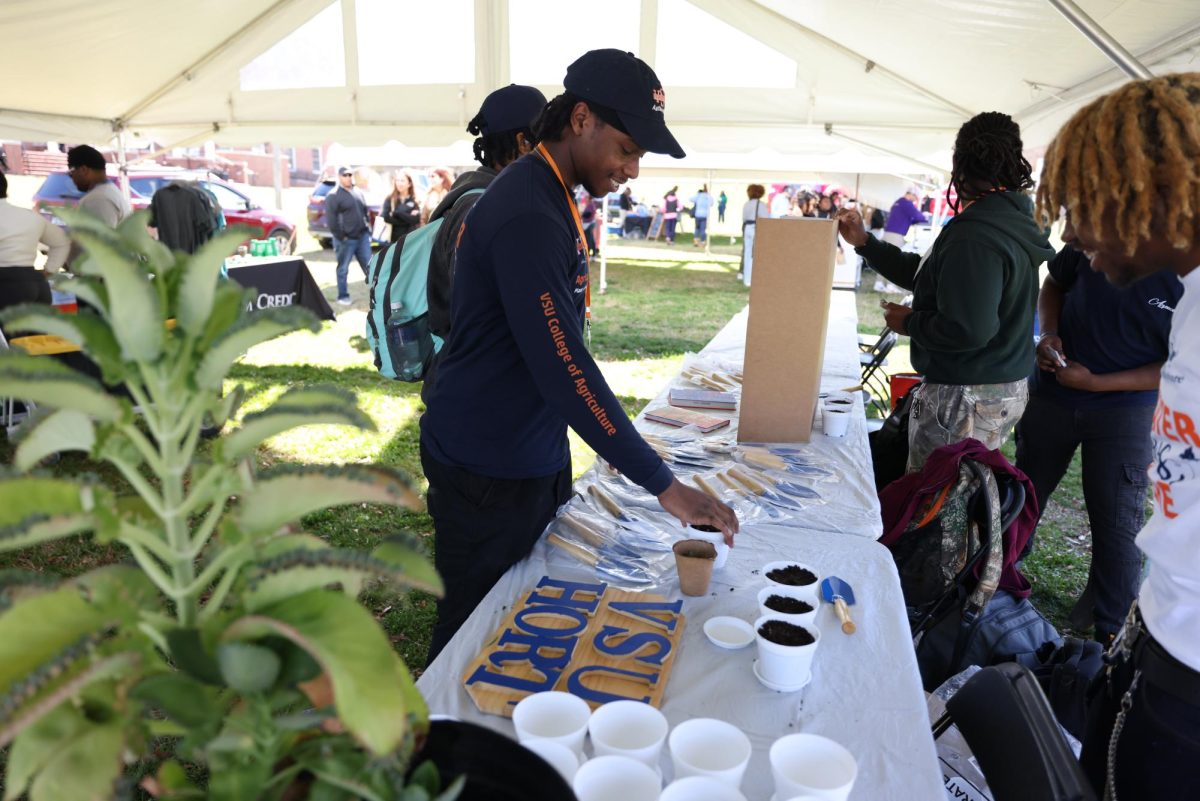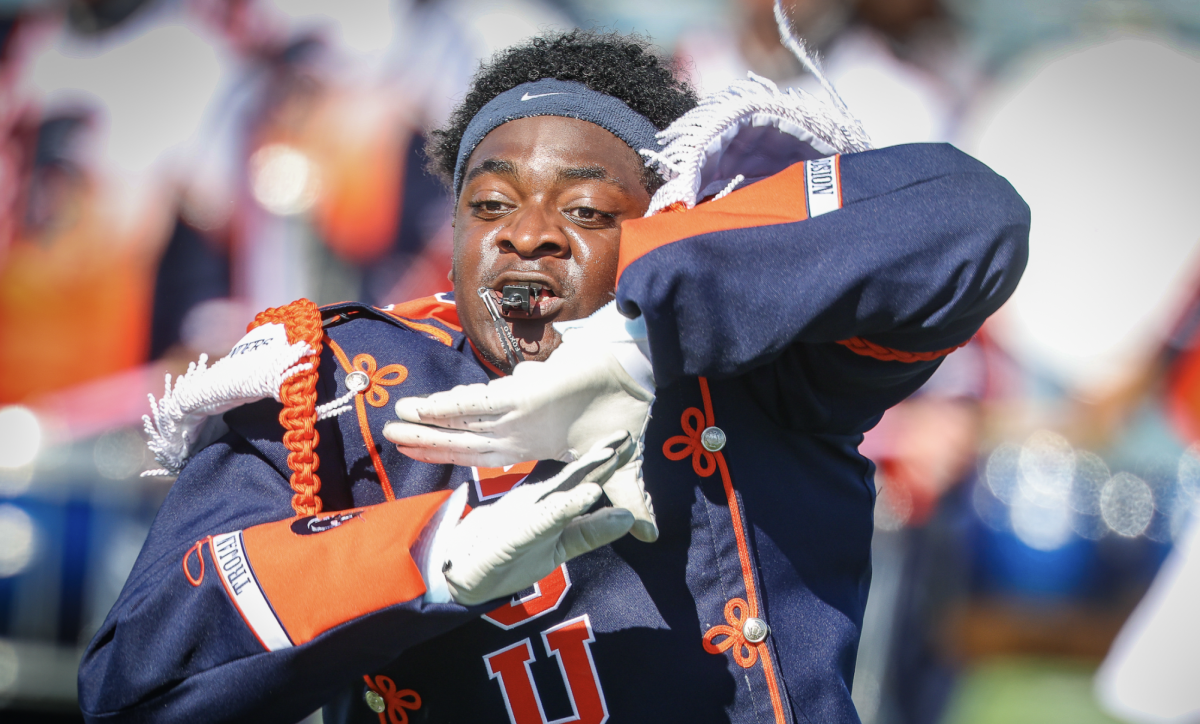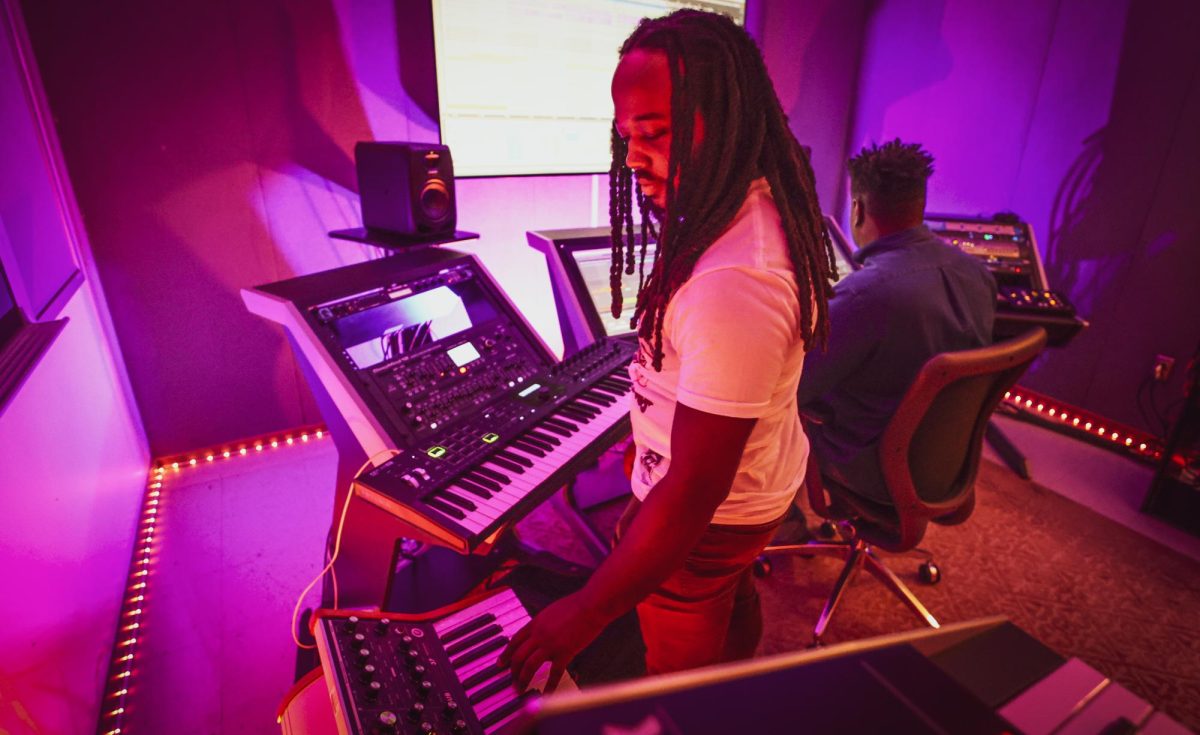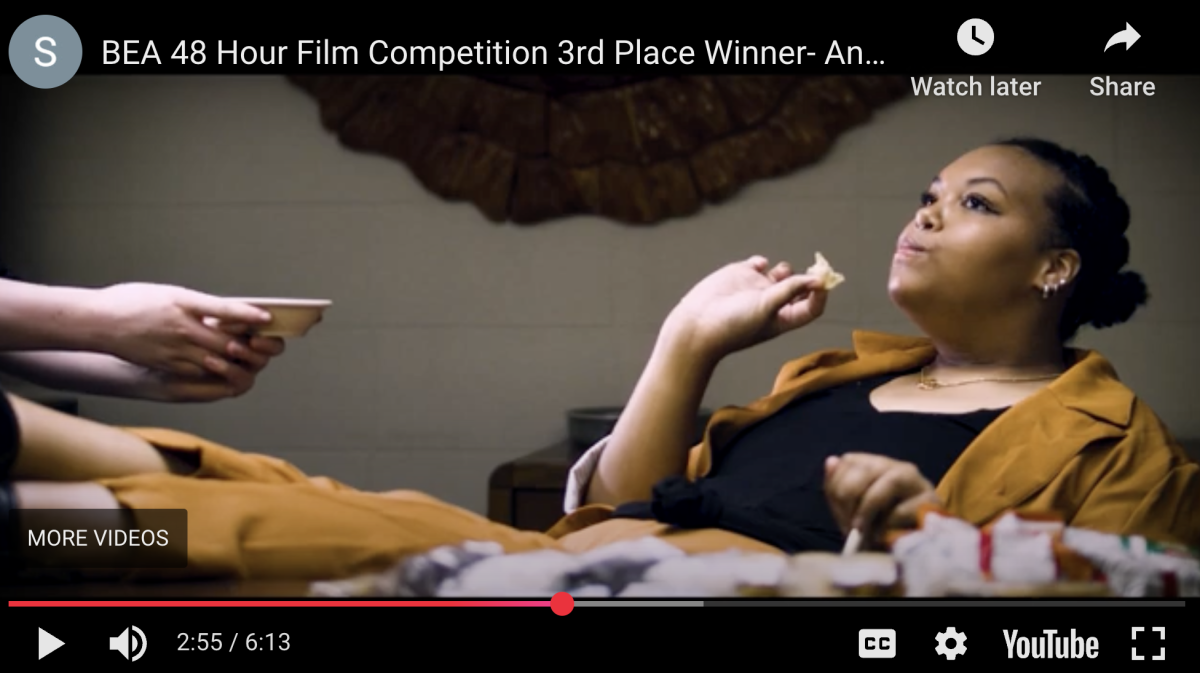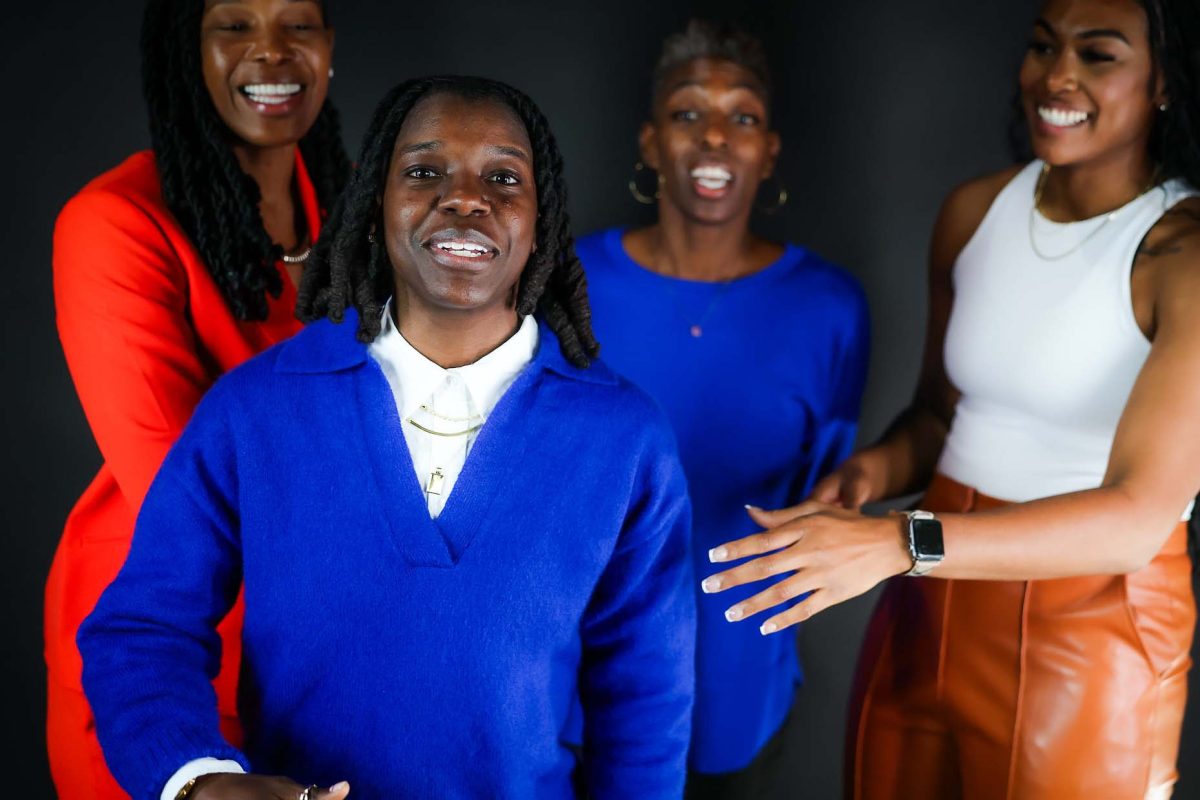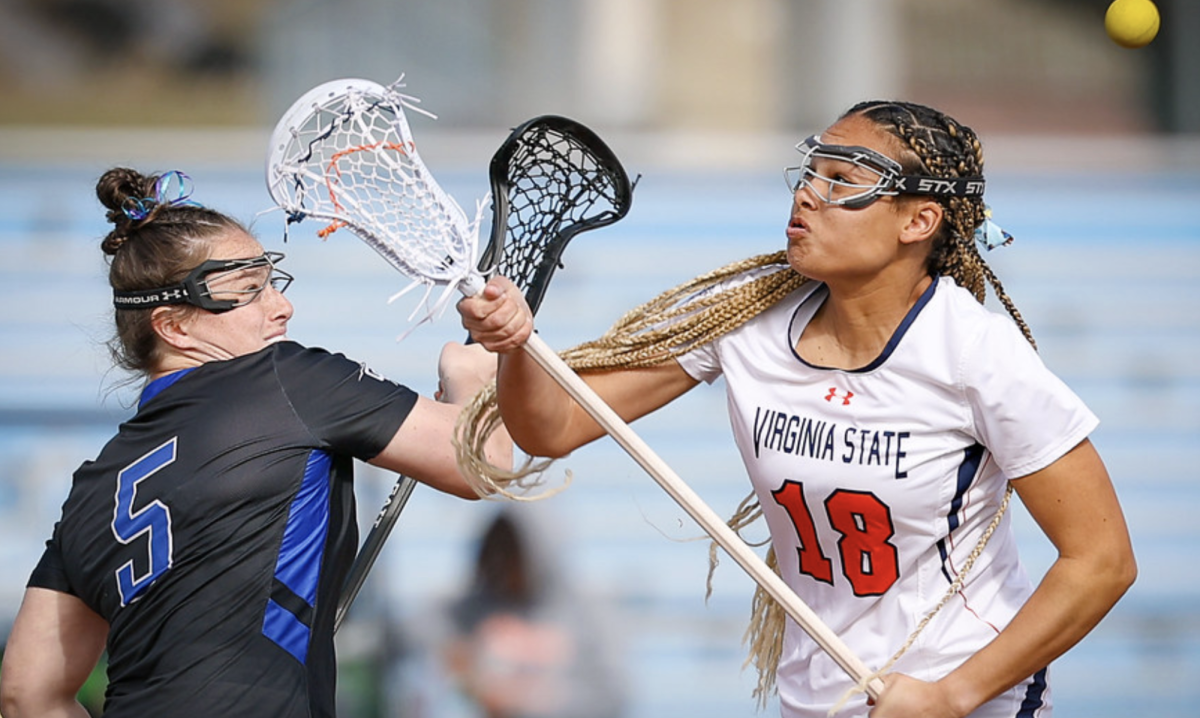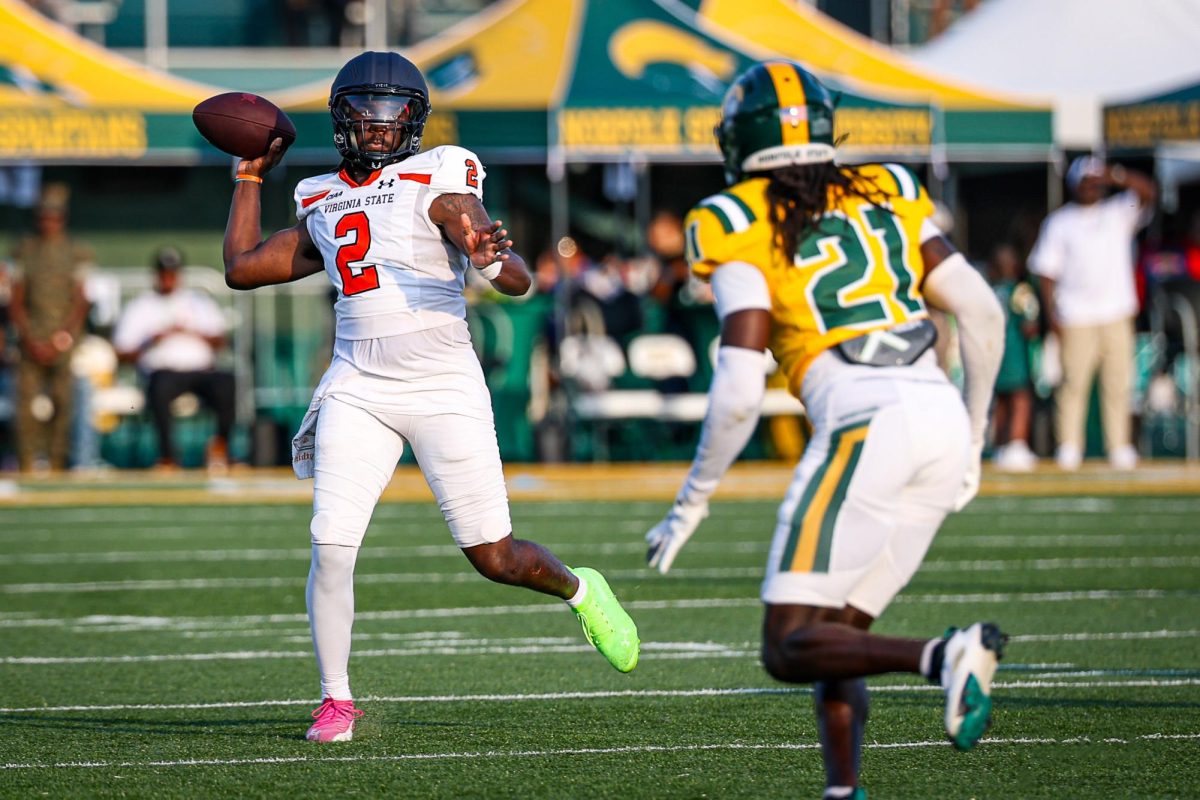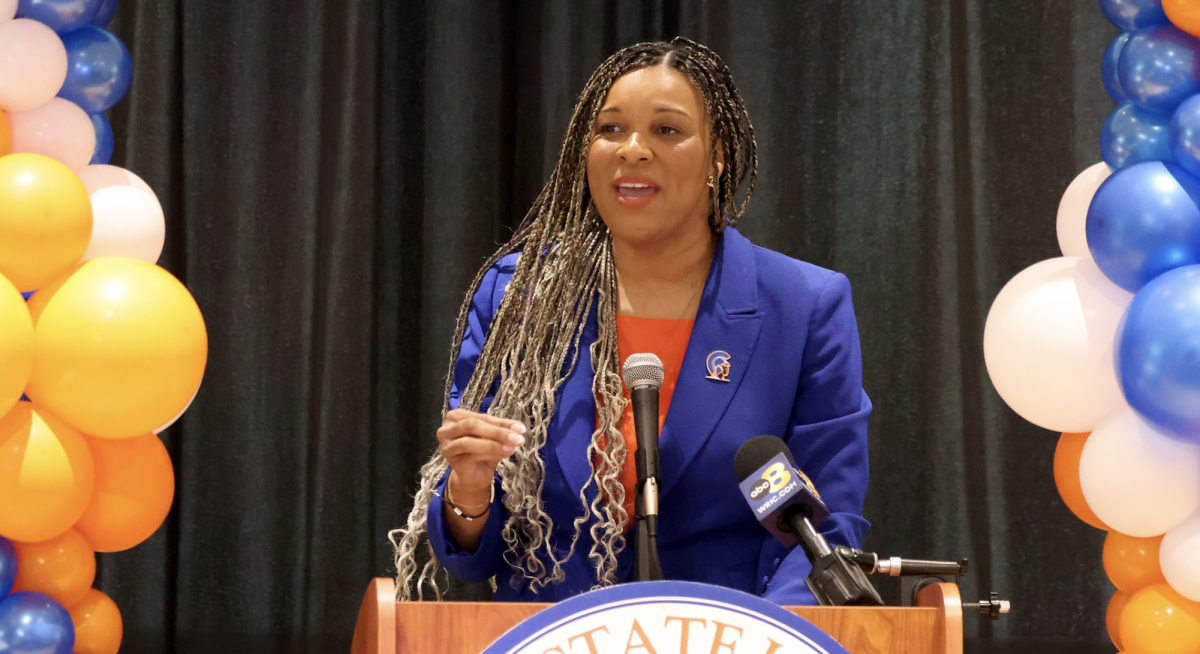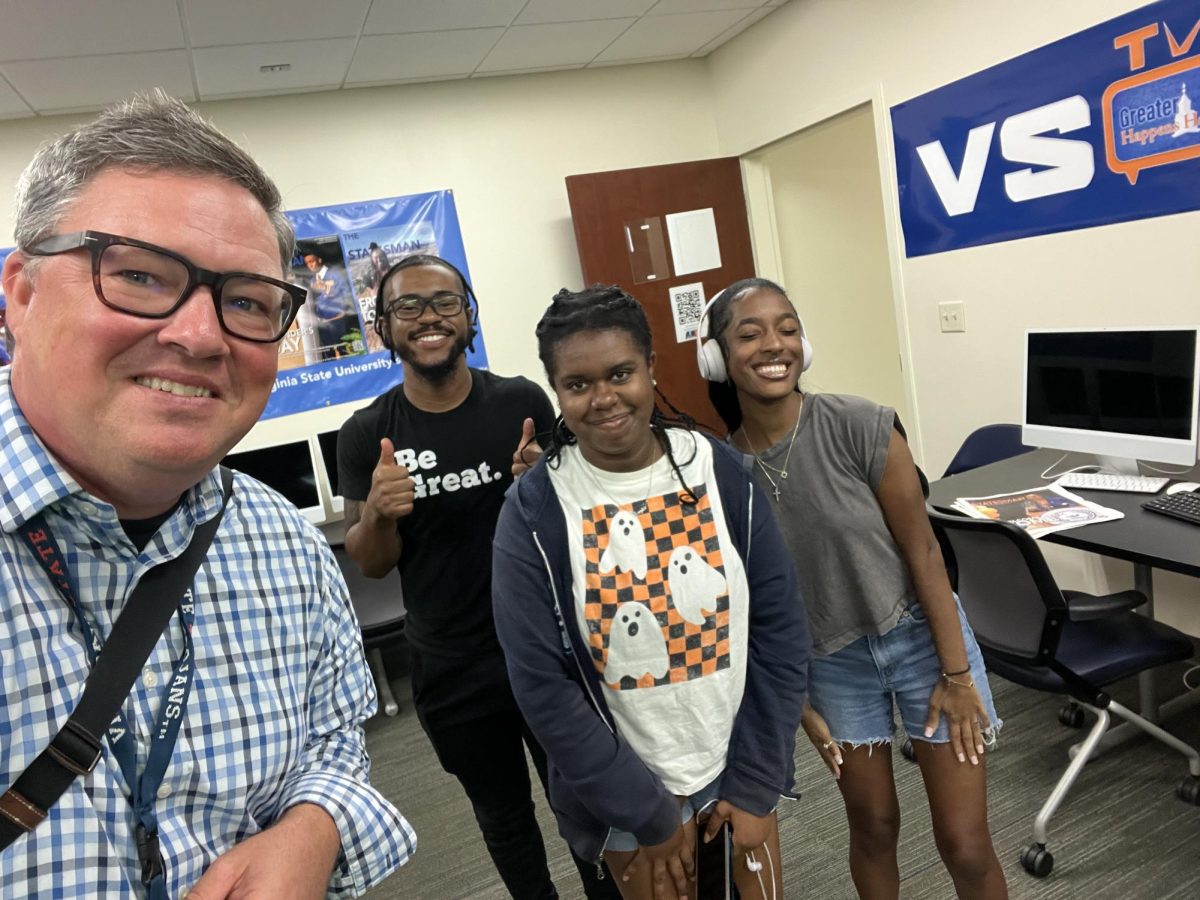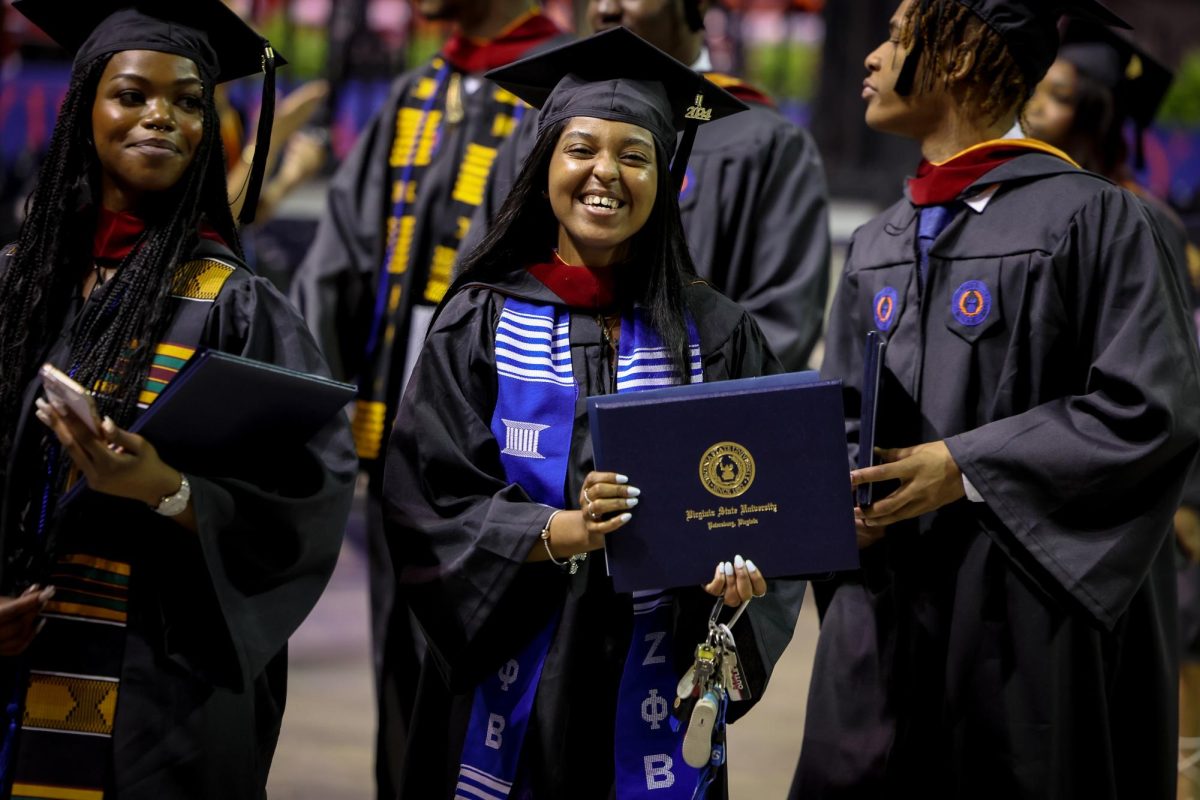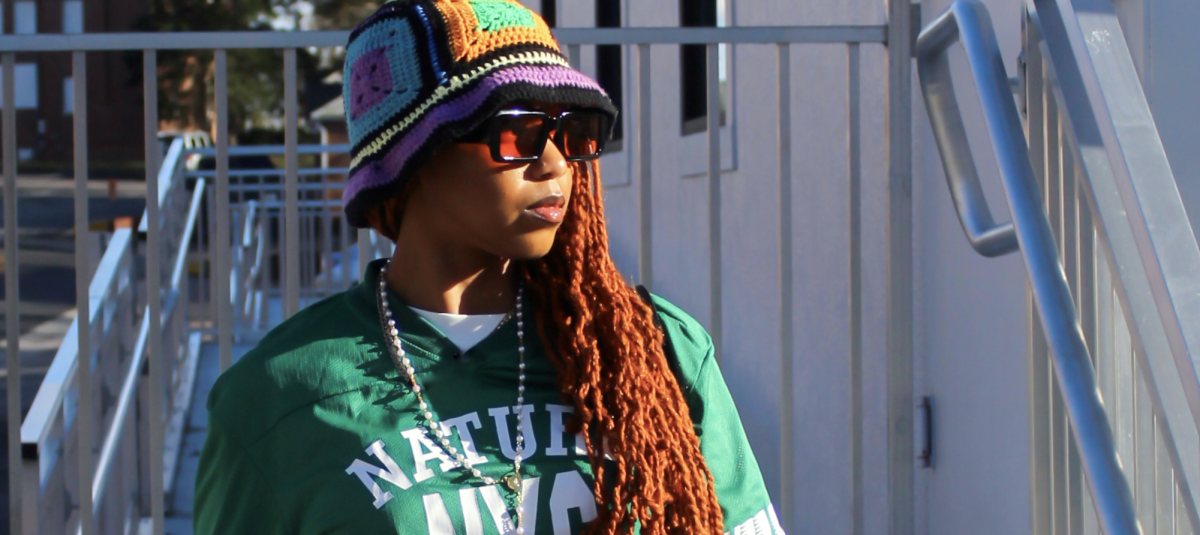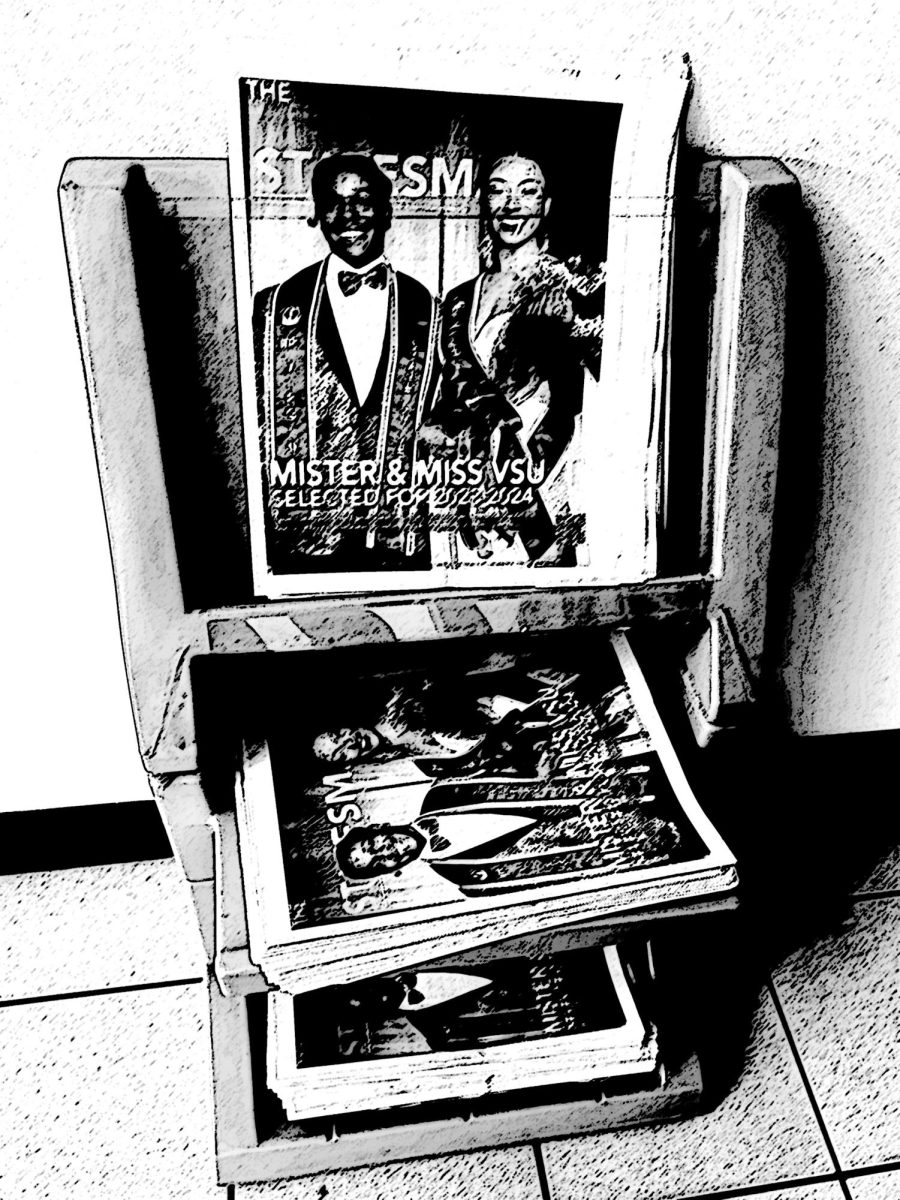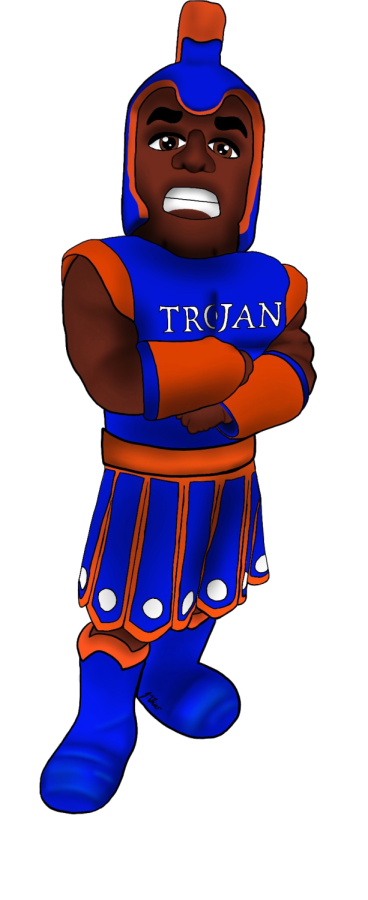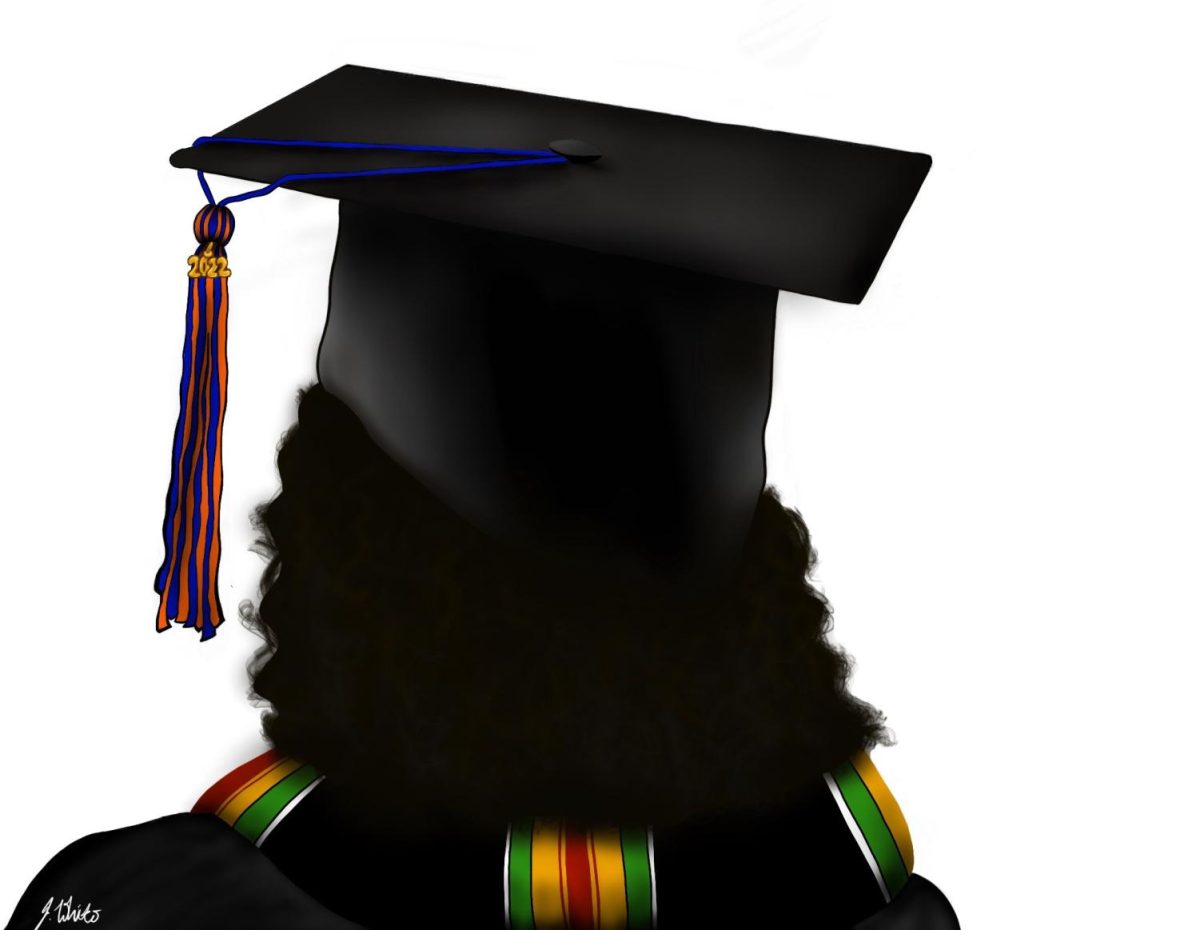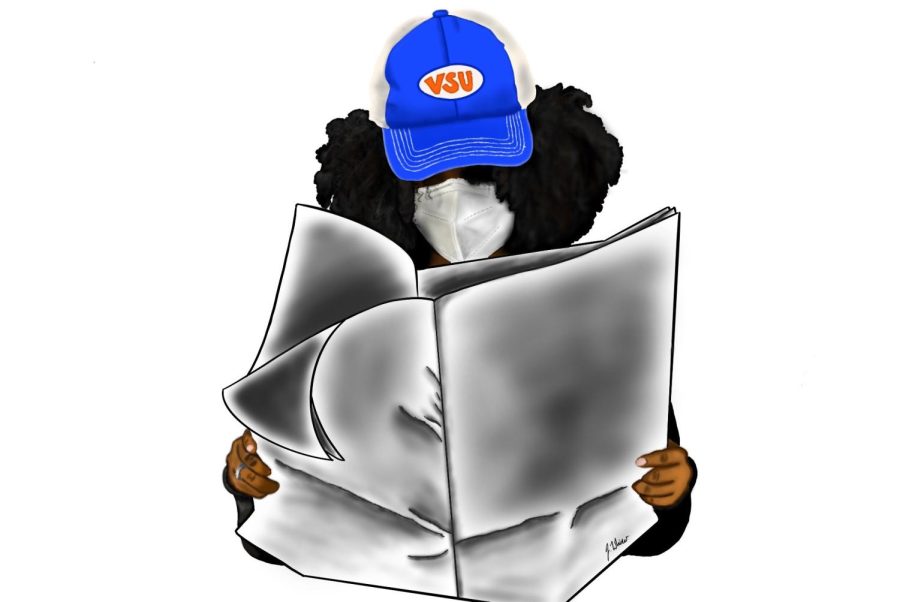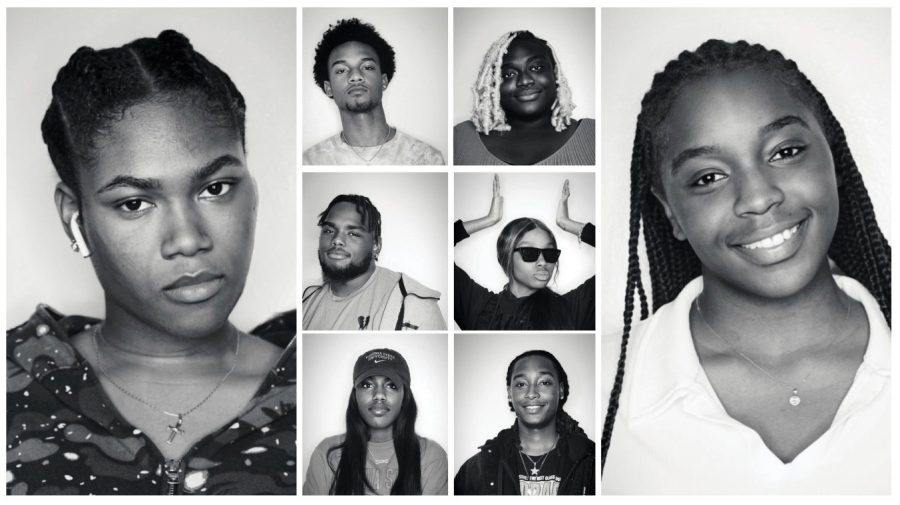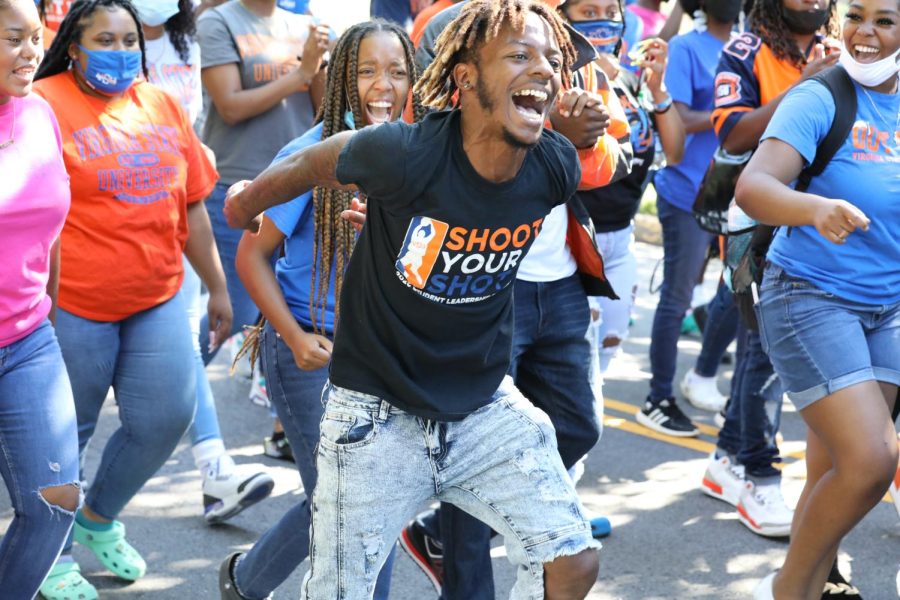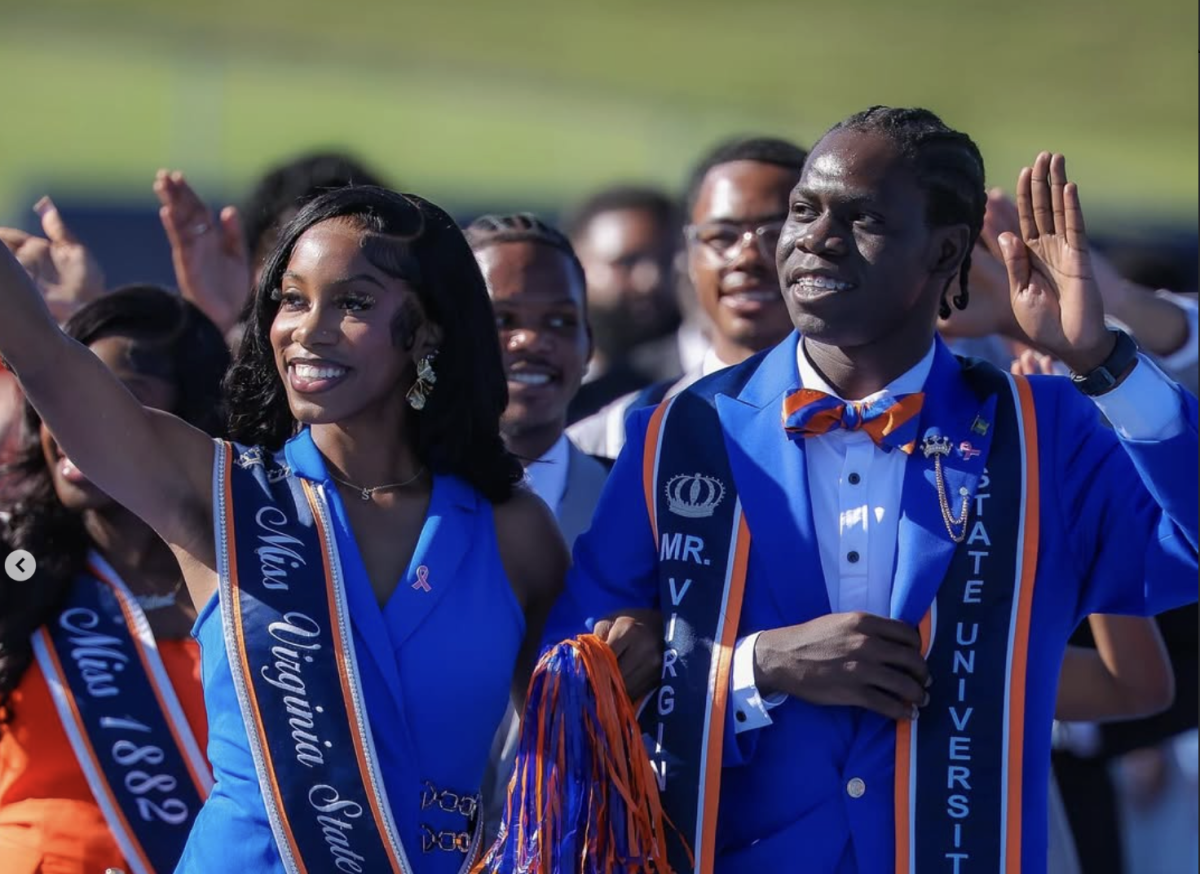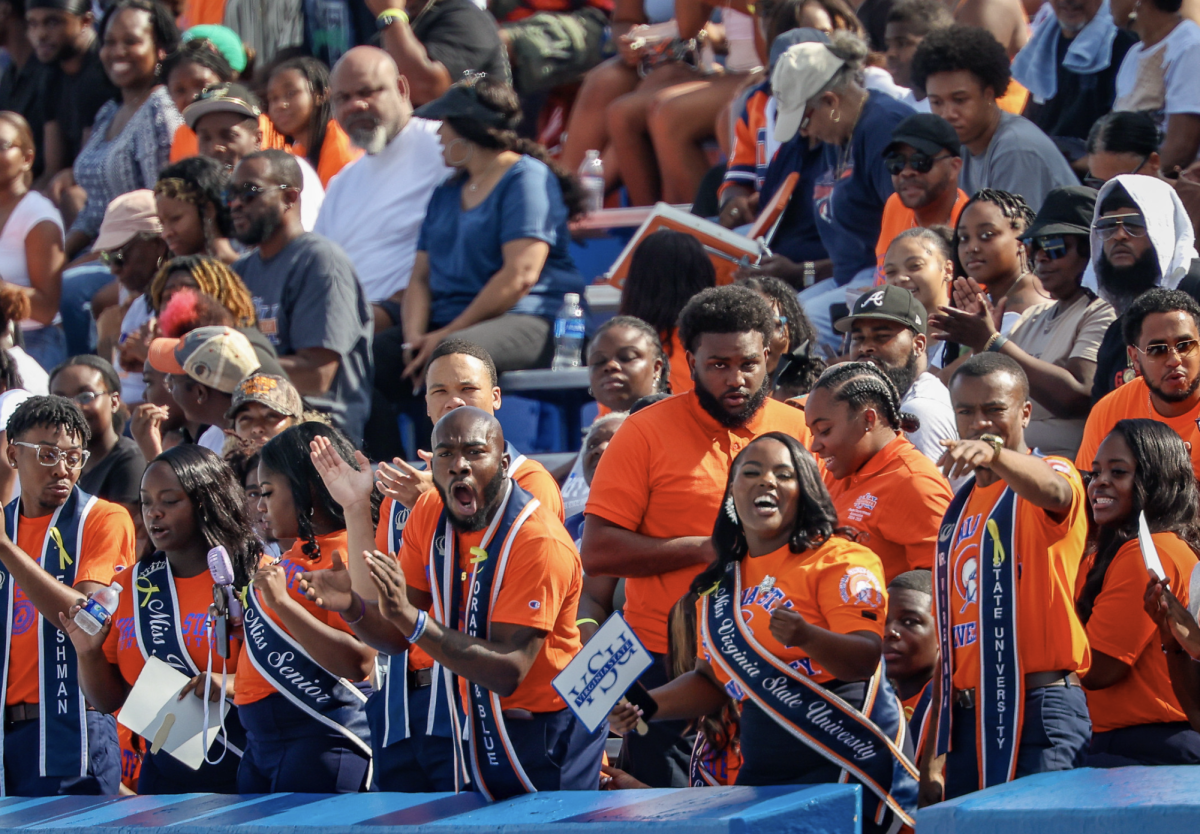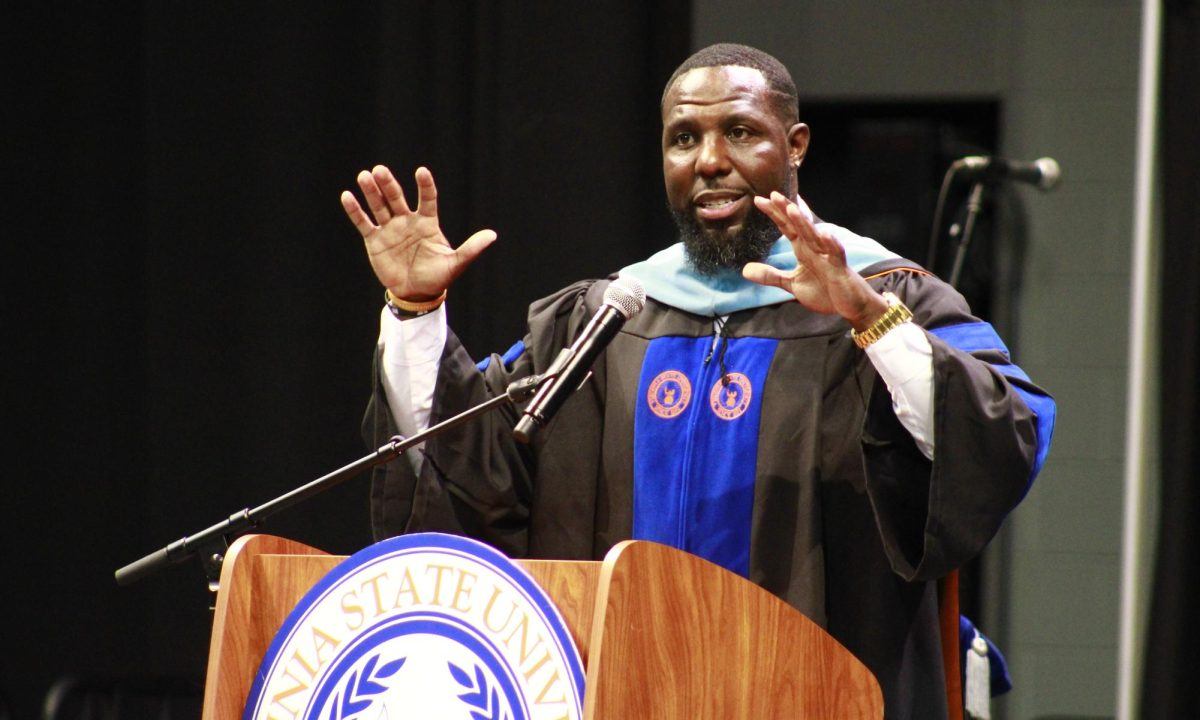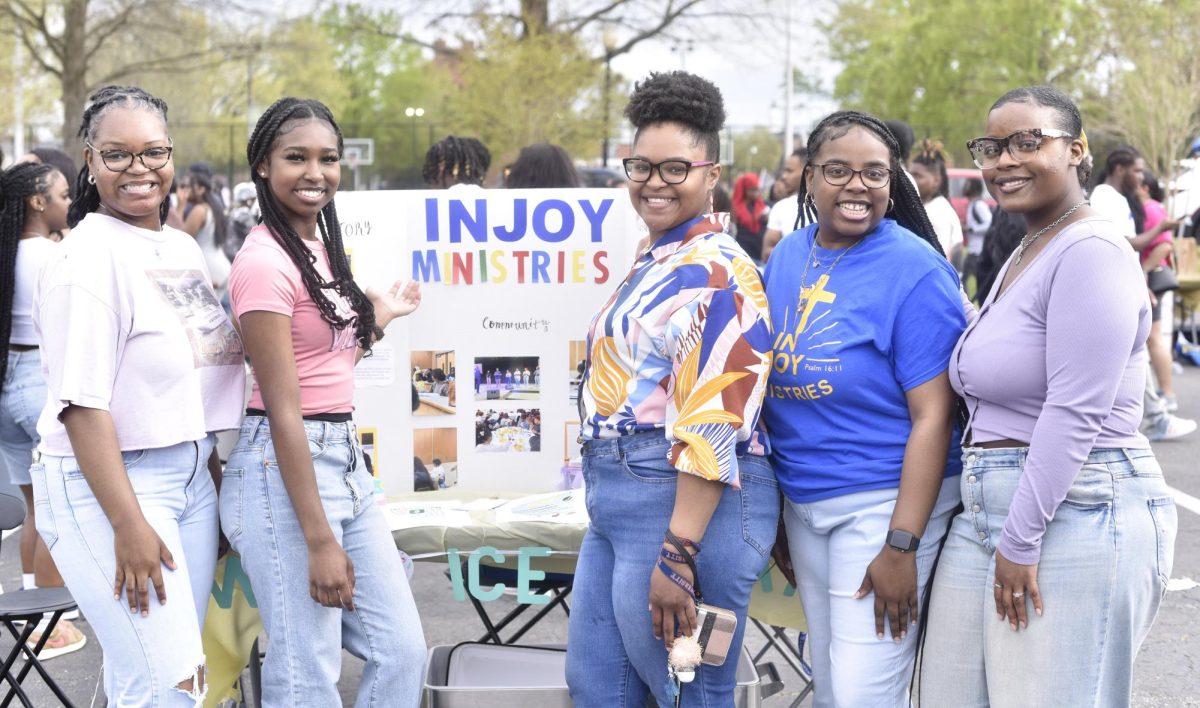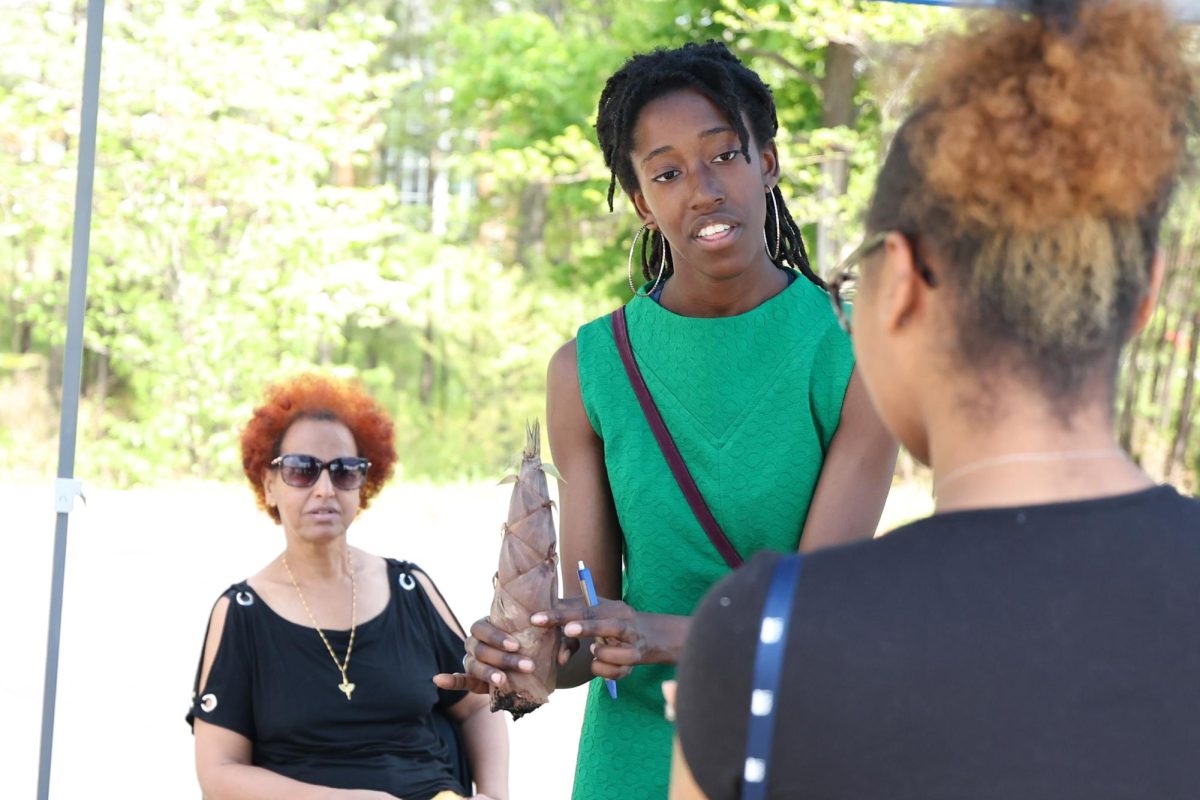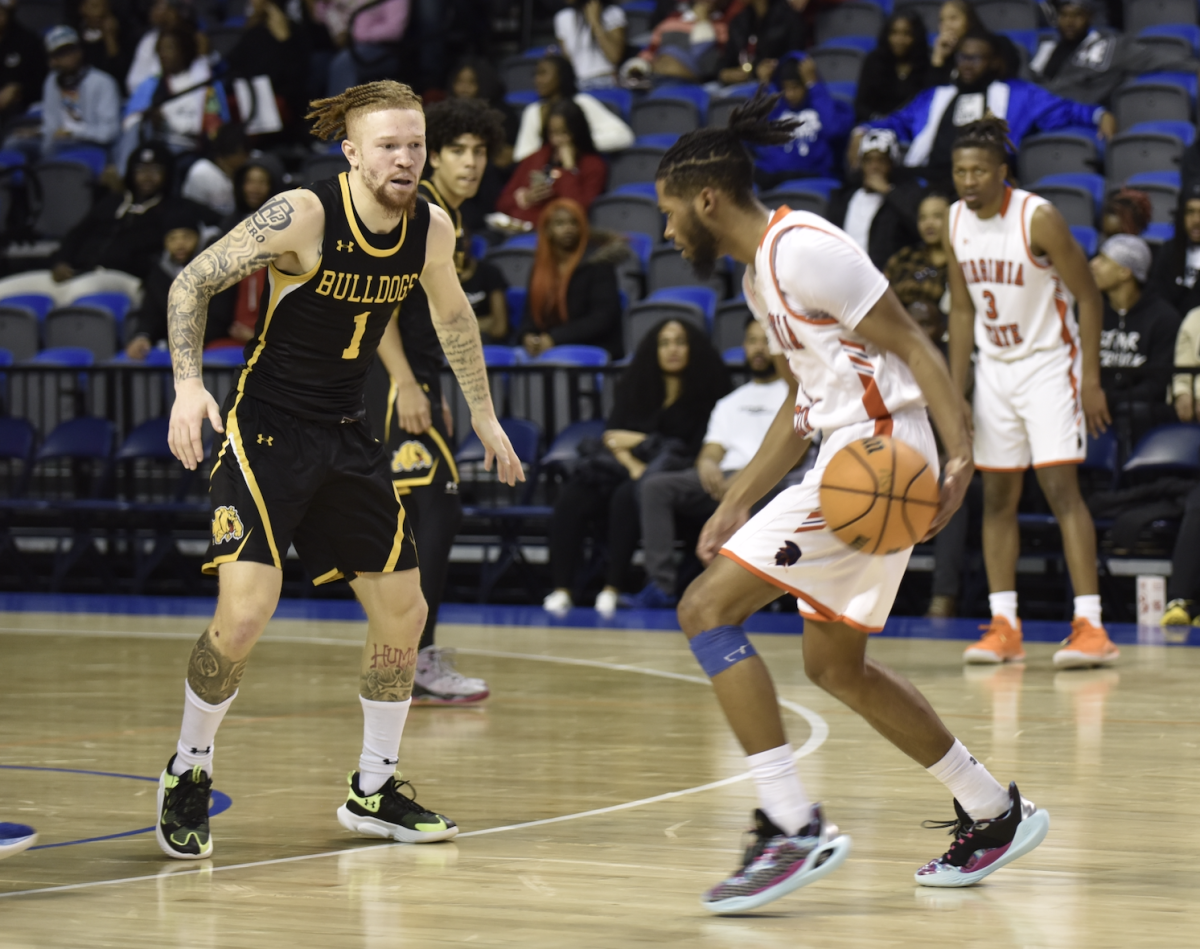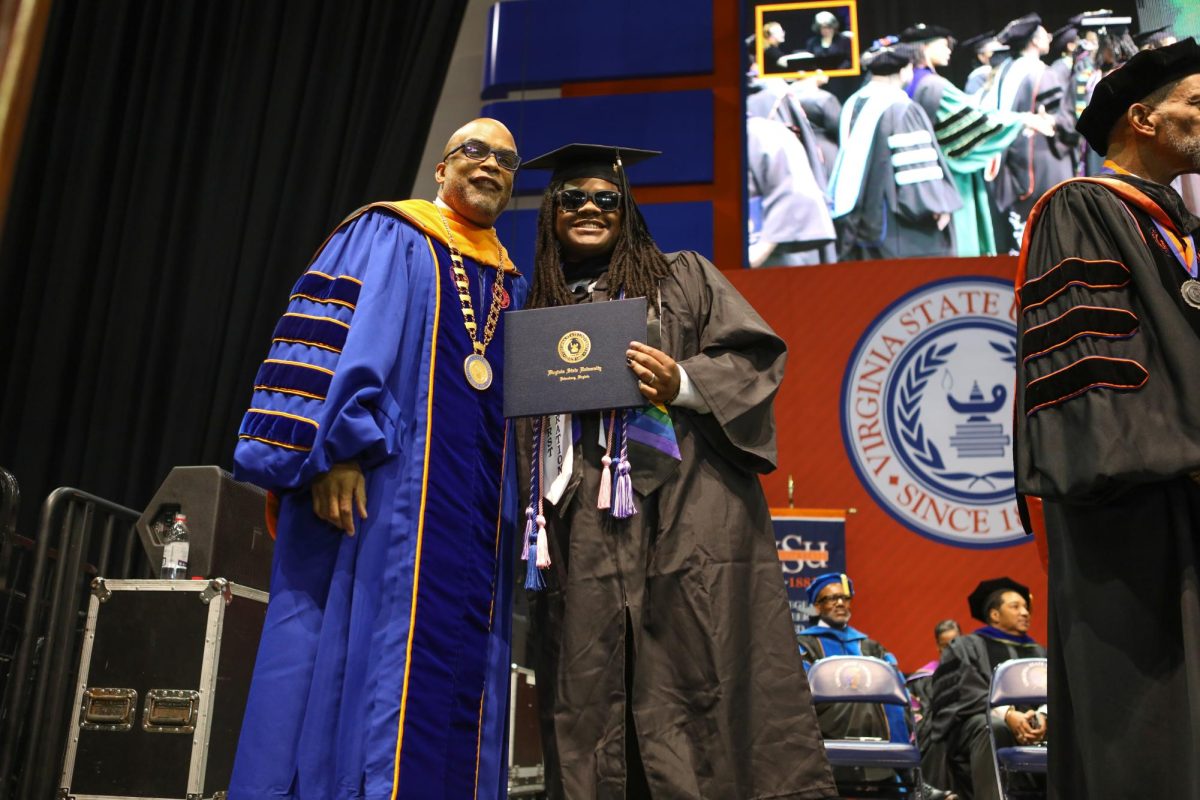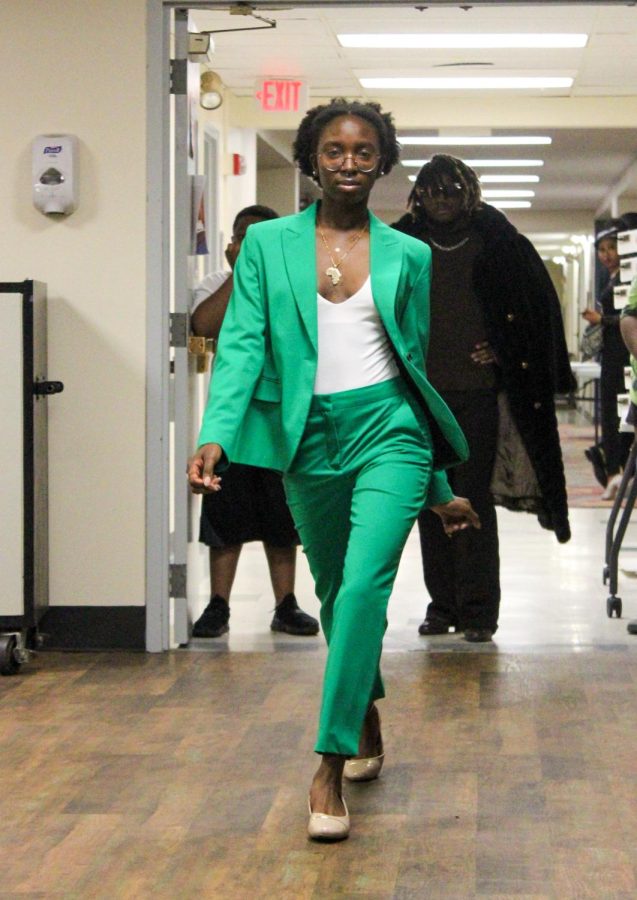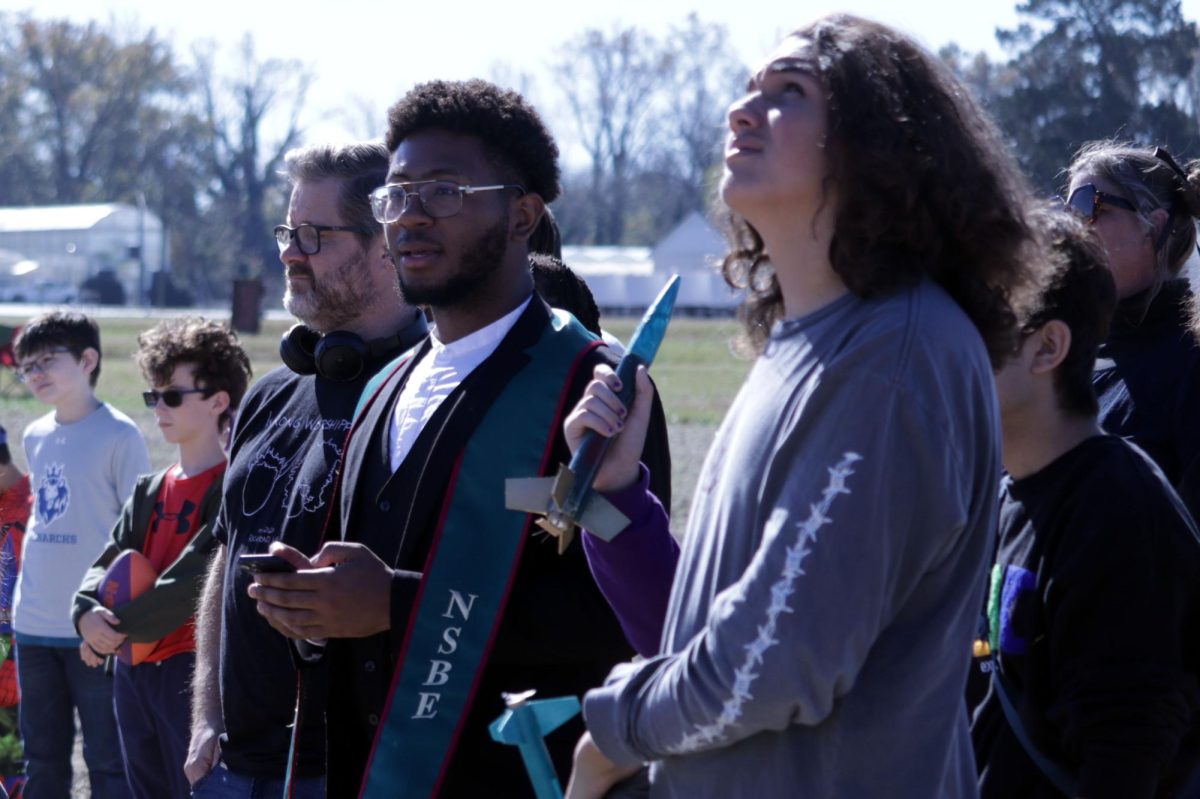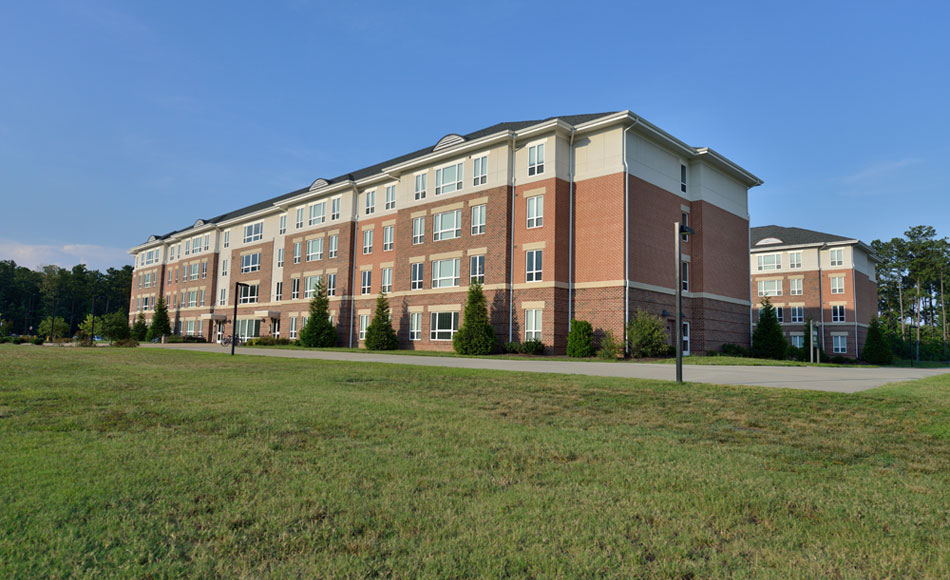For the first time ever, Virginia State University has been selected to participate in the 2024 NASA Student Launch Challenge, hosted by NASA.
Virginia State’s rocket launching team is called the Trojan Takeoff Team, and is founded and led by senior computer engineering major MaKhaila Bentil. The Trojan Takeoff Team consists of 31 students, the majority being computer science and engineering majors. The Team will compete against 48 other student launch teams from other universities to ‘design, build, test and launch a “high-powered rocket carrying a scientific or engineering payload,’ according to NASA’s Student Launch website.
“NASA Student Launch is an opportunity for students to get an inside look at how NASA conducts rocketry and for their universities to familiarize themselves with the engineering process,” Bentil said.
Bentil learned about NASA Student Launch from her NASA Here to Observe – also known as NASA H2O – mentor Dr. David Smith. Bentil was completing the NASA H2O program for the second year when she decided she wanted to ‘weave a thicker web between Virginia State and NASA.’ Smith informed her that NASA Student Launch was the perfect way to do so, and took Bentil’s H2O program group to Wallops Flight Facility, where NASA launches rockets and contributes to many publicly-known space missions.
“I think taking the NASA H2O team to go see that really got people charged up about starting our own rocket launch team,” Bentil said. So when I saw that people were excited after the trip, I said, we can really do this. I felt like I had the networking tools and technical tools as well to make this into a real thing.”
Bentil’s internship with the Johns Hopkins Applied Physics Laboratory as a space exploration intern also helped her get more information about forming a student launch team.
The Trojan Takeoff team ‘hit the ground running’ at the start of the semester in Aug. During the beginning of the fall semester, the Trojan Takeoff Team was only Bentil, Michael Archibong and Kofi Mason.
“They were extremely helpful in writing the proposal for the NASA competition,” Bentil said.
The student launch team went from three students to over 30 in a few short months, through members recruiting through word-of-mouth and reaching out to Virginia State’s National Society of Black Engineers chapter, also known as NSBE.
“After we got a couple of people and the numbers started to build, then they were telling their friends about it and their friends wanted to join,” Bentil said.
A major part of the challenge is being familiar with the rocket-making process. Each student launch team has to have a mentor from the National Association of Rocketry.
Bentil, who is also a member of the NAR, has two NAR mentors for her team.
For the past few months, the Trojan Takeoff Team has been building and developing their rocket in preparation for presenting their rocket presentation to a NASA panel. Throughout the entire student launch process, NASA will work with the Trojan Takeoff Team to ensure their rocket is launch-ready by the time the team does their final launch at NASA’s Marshall Space Flight Center in Huntsville, Alabama on April 10-12.
“They’re following us along in the process to make sure that we’re doing our due diligence to complete what we propose, but also that we can execute it safely because safety is huge with NASA.”
The Trojan Takeoff Team completed its first successful preliminary launch on Nov. 4 at Virginia State’s Randolph Farm. The next step is the subscale launch, which will take place in the upcoming months at the Randolph Farm.

